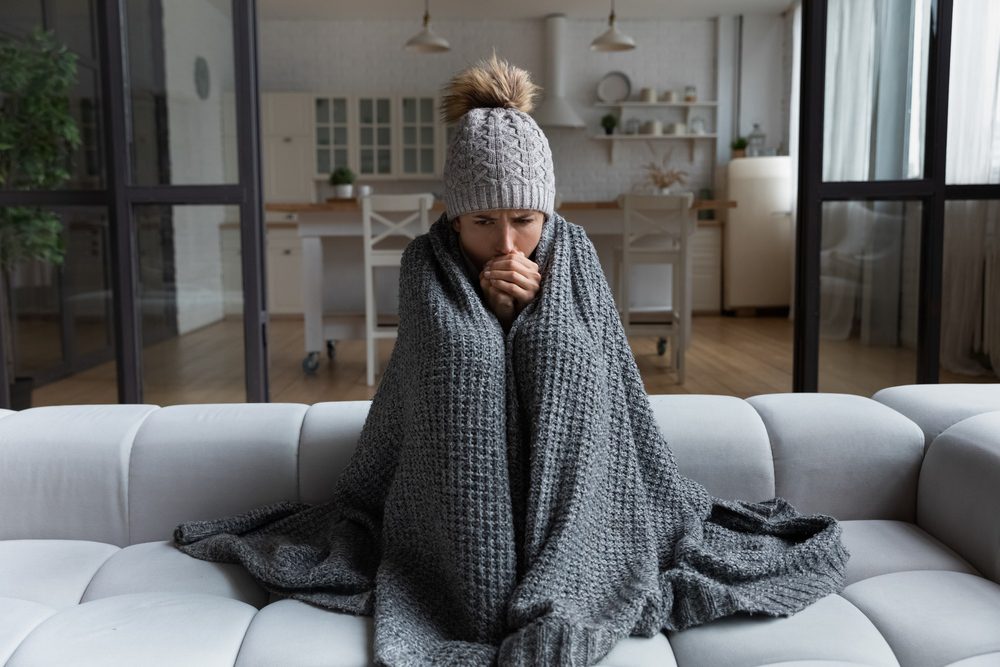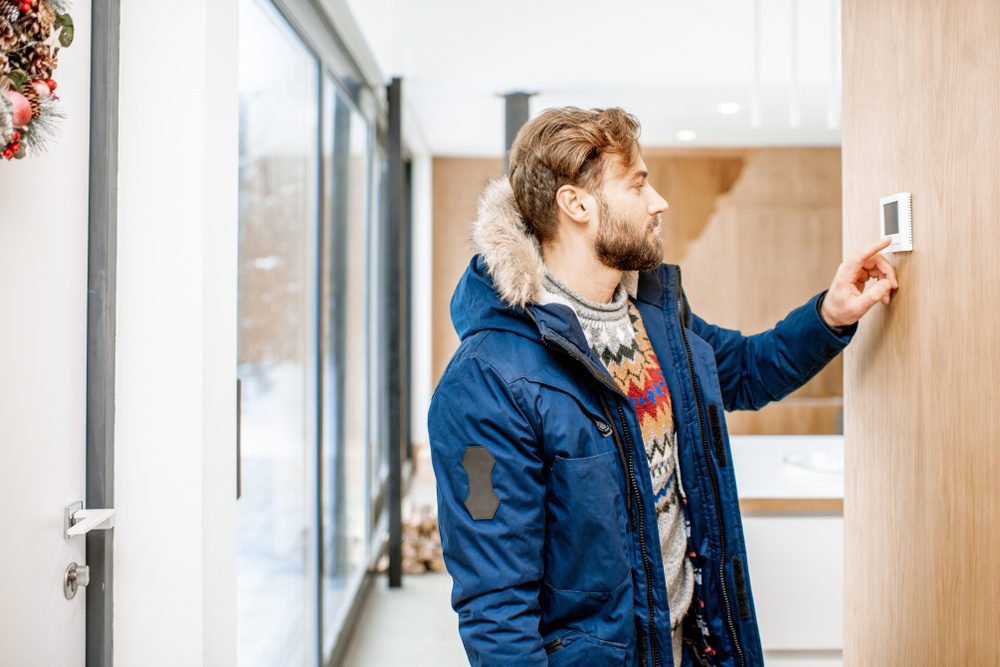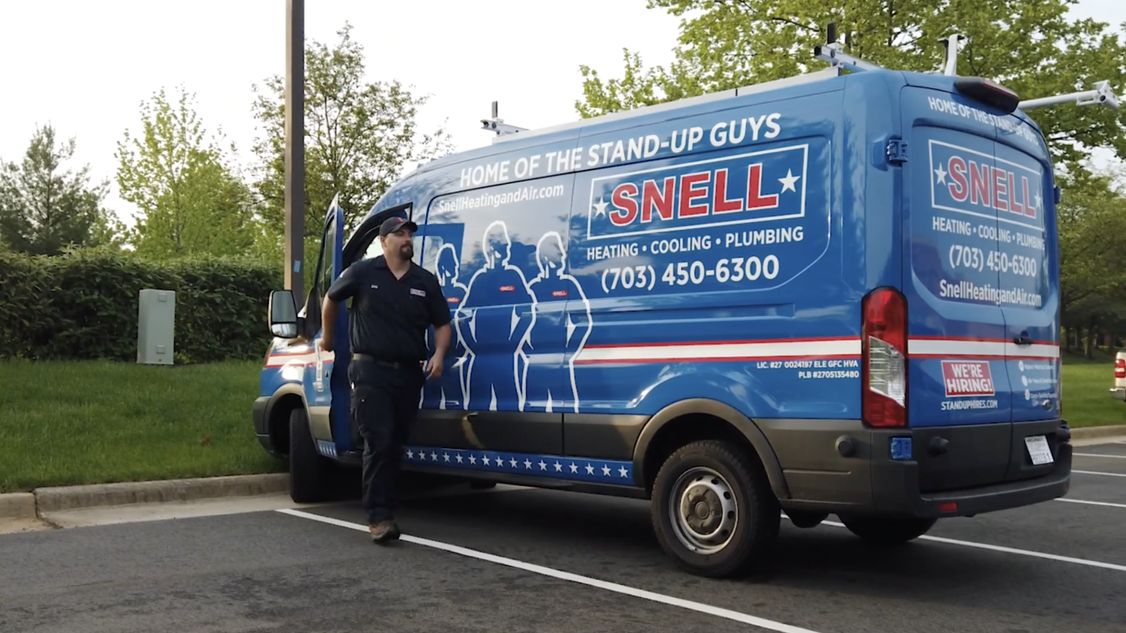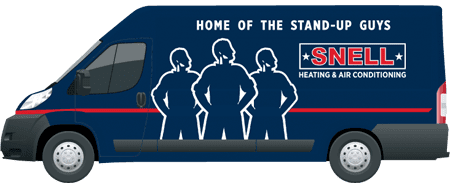
Want to stay warm and cozy this winter without breaking the bank? We’ve got you covered. Whether you have a manual, programmable, or smart thermostat, these tips and tricks will help you keep your house at the perfect temperature throughout the winter season.
What Temperature Should I Keep My House?
Average Temperature of Homes in the Winter
The average temperature most homeowners keep their thermostats set to during the winter is 68 degrees Fahrenheit. We recommend settings yours within the 67 to 70-degree range. However, at the end of the day, every homeowner is different and may prefer a slightly higher or lower temperature.
Excessive Heating
Avoid setting the thermostat in your house above 72 degrees in the winter. Adjusting your thermostat to this temperature wastes energy and increases your energy bill significantly. Overheating your space also decreases humidity levels in your home, which creates a dry environment. Dry air is bad for skin, wood floors, and overall health, as your body becomes more susceptible to bacteria and viruses.
High Humidity
While you might be tempted to bring out the humidifier to offset dryness in the air, we don’t recommend it.
Here’s Why:
- More energy is required to heat moist air than dry air, which results in higher monthly energy bills
- Too-high humidity levels cause your heating system to waste time and energy producing heat
- Excess humidity (above 60%) increases condensation levels and allows mold growth, which aggravates allergies

What Temperature is Too Cold For a House?
When deciding what temperature to set your thermostat to, avoid going below 63 degrees. Temperatures below 63 degrees Fahrenheit can cause mold and mildew growth or increase allergens.
Do Frozen Pipes Always Burst?
While frozen pipes are more likely to burst, it’s important to remember that frozen pipes don’t always burst. Pipes burst when the water inside them gets too cold, freezes, and creates blockages. Unable to flow through the pipes, the water builds pressure until the pipes break to release the water.
Some factors that determine whether a pipe will burst include:
- Water temperature: Water that is 32 degrees Fahrenheit or below is more likely to cause pipes to burst. However, most pipes won’t burst until the water temperature dips to 20 degrees Fahrenheit or below.
- Internal pressure: Frozen water creates blockages in the pipes, which can cause them to burst.
- Insulation: Better insulated pipes are less likely to burst because they’re protected from frigid temperatures.
- Location: Pipes in unheated and poorly heated spaces are more likely to burst because they receive less heat.
4 Tips to Prevent Your Pipes From Bursting
The good news is that burst pipes are preventable. If you want to protect your home from messy, costly water damage, follow these four tips.
- Keep all kitchen and bathroom cabinet doors open where your sinks are so that warm air can reach the pipes underneath. If you have pets, be sure to remove any hazardous items stored under your sink.
- Set your thermostat to 63 degrees Fahrenheit or above in the winter.
- Leave faucets at a slight drip when the temperature is 32 degrees Fahrenheit or below. Moving water is less likely to freeze. If the water can’t freeze, it won’t cause blockages that lead to pipes bursting.
- Insulate your pipes, especially ones located in poorly heated spaces like an attic or a basement.

Emergency Plumbing Repair Services
Fix damaged pipes before winter weather is in full swing by scheduling an appointment with our professionals. Our team of local plumbers in Leesburg, VA and other areas offer comprehensive plumbing repair services for homeowners. Our team will advise you on the correct temperature to keep your house in the winter to prevent burst pipes. In addition, our technicians offer a variety of other plumbing solutions such as sink or fixture installation, sewer line replacement, water heater repair, and sump pump installation. Give our licensed plumbers a call at (703) 543-9649 to book an appointment and receive assistance with a plumbing issue in your house.

